Exploring with Cory Lemke, Part I
A Q&A with linguist, scholar, Korean adoptee, and personal bestie
The first year I lived on Jeju Island in Korea, it took exactly 4 months before I felt myself mentally pacing up and down the hallway of our modern apartment. On an average day in America, I’d have chatted with at least 10 people by noon. In Korea, small talk isn’t a thing. And even if it was, my rudimentary vocabulary of knowing how to pronounce a few vowels, say hello, thank you, and yes wasn’t getting me very far for even the basics of general relationship-building.
As an EE… extreme extrovert, I was dying a little bit each day.
I put out a call on the Korean adoptee Facebook groups. Picture me standing on a cliff overlooking the vastness of the ocean, calling out into the expansiveness of air and space.
“Hello! <echo> Is there anyone out there?”
I connected with a couple of people in this way who were visiting the island. But after a coffee or a meal, they’d be gone. I still remember Cory’s reply to my post on social media. A simple hand-raised emoji, which, looking back, does nothing to adequately represent the energy and personality that I’ve come to know in him.
We met in the lobby of a local resort hotel, and as it does when best friends meet for the first time, the conversation flowed as quickly as the seconds evaporated, and almost immediately we were connecting on the reunions we had with our birth families and… all of the things.
Not long afterwards, we were wandering the streets of Seoul talking until the early morning hours and being in the comfort of a space where it feels as easy as hanging out with yourself. Finding someone with whom you can match so easily in energy, emotional care, and communication style is a rarity. It’s why I know I’m lucky in the magic of having found him on my own journey.
Since that first fall, I can barely recall a time when I’ve found joy in this country and Cory hasn’t been there: Dancing in Itaewon, walking on the northern shores of Jeju, sleeping in jimjilbangs, and working through heartbreak, office politics, community gossip, and the shrapnel that comes from being a part of two countries, two worlds, two families, many overlapping communities, and identities. Cory understands the nuances of the people and places and culture that are difficult to put your finger on in Korea, but are felt like humidity in the air or wind on your face.
I’m thrilled to introduce Cory Lemke to my community of readers this week in two parts. He offers perspectives from a very smart and informed place, having been in this community for years, watching it grow, change, struggle, and adapt.
He also offers his thoughts from a baseline of hope and optimism, pragmatism and realism. We’ve arrived in this place - wherever that may be - because of the circumstances we’ve been dealt. Yes, they’re not always lined with cozy clouds or feel-good moments. Some of it has been downright unfair and shitty. And we’re here. We’re surviving. How can we do it together?
Cory brings a wealth of knowledge with personal and historical context to the topic of identity and this adoption journey. Having been in reunion with his Korean family for almost half of his life, he’s also lived, worked, studied, survived in middle America, Korea, and almost everywhere in between.
Follow him @adopteelinguist on Instagram. Wrapping up his doctoral program in linguistics at the University of Illinois Urbana-Champaign, his research focuses on the bilingual experiences of adopted people and the (re)learning of their first languages.
What should my audience know about you?
I was born in Jeonju, South Korea, but my family is originally from a town outside of Jeonju called Bongdong, which is funny even to Korean people. I moved back to South Korea in 2013 at the end of 2013 and I left in 2023 to pursue a PhD in linguistics at the University of Illinois, Urbana Champaign, where I've been ever since.
I met my partner in 2020 during COVID on Jeju Island. I reunified with my family shortly after coming here. I reunified with them because I needed to. It was kind of by accident, actually. I needed to get my visa. You had to go to the adoption agency to do so and they basically asked me: Do you want to do a birth family search? And I said, Yes, why not? I was on the phone with [my birth family] three days later.
I don't often share this with the public: my birth mother does have a mental illness, and she is - was - institutionalized. She was a single mother at the time. You know, she was like an unmarried person. So you can kind of guess how difficult it was for her.
With the Frontline documentary stuff, I am kind of learning what all of that means and what that meant in the historical context. Like, it was post Olympics. 1991 was not many years after. I mean, they were starting to shut down adoption in ‘88 right? Because of all the bad press, ‘89 would have been the first cohort [of adoptees] where there really was hyper-scrutiny.
And I do believe that [Korea] had the infrastructure in place to literally sweep children off the streets. So, they were really looking for cases - I think “real” cases, let's call them - where it would be uncontroversial for adoption. I happened to be one of those and I think we can see why. And so, you know, I kind of feel like in the community, it can be a little difficult talking about that. Because I think, sometimes, to have an access point into these conversations, you ideologically need to be very mad at the system. You need to be very, very critical of it. And I am, in my own way, but I do think it is a different criticism.
It's a different entry point. It's a different anger than: “I was kidnapped by the State.” So, [the adoptee community] is learning to process some of that.
I spent 10 years, of course, living here within South Korea. I started a business in 2018 and I'm still operating that. So, that's seven years now and I’ve been building my relationship with my biological family and studying language.
Was there a catalyst that caused you to begin the journey of exploring how adoption has impacted your life?
I hate the term: “coming out of the fog,” because I think it's so condescending as - right? We've talked about that, right? It implies that people are in the fog, and they're unaware of the things that we know, and I really don't think that that's the case. Like, I think some people legitimately don't want to know about their past; it's too painful. And I think anyone saying that, “Oh, you don't want to search for your family” or “You don't want to search for your past” is incredibly condescending. Actually, I think when people don’t want to search, it is very protective and can be very protective.
I really resist the notion of “in the fog.” But at least for me, my journey, my racial journey into all of this, I think, really began, as a queer person and a young Asian American person. I began this, coming out in high school. I decided to major in Chinese because we’d just had the Beijing Olympics. I was like, I don't know what I want to do with my life, but Chinese seems like a good bet. A lot of the adopted people that I've met over the years - I'm finding that that's like their entry point into coming back to Korea. There's a safety net. China, to me, was like, close enough to Korea. That knowledge, the skills [I learned to exist in China] have been very applicable to my experiences in Korean language acquisition.
I studied abroad in Taiwan, I studied abroad in China, and it was great, and I had very good experiences there. I learned a lot about our relationship and what it means to be Chinese American. It was very formative for me. But at some point, and I think it was around that time, I just got tired. I was in Taiwan, I was in a language program, I was studying, and it was grueling.
I was just at this club and I remember standing there - and I can still see it - me staring up at this clock at this club. And there might have been alcohol involved, but I was staring at this clock thinking: time is running out. Like, it's now or never. When are you going to do this? You know, you keep, putting this off, and you keep trying to make steps towards it, but you just need to commit and go. Like, commit or quit. (That was the mantra of my college fraternity: commit or quit.)
So, I went back to the States, and, you know, the economy was not great, and just like any fresh college graduate, you're like, What am I going to do? In the meantime, I was working at Bath and Body Works and it was great. I think I could have stayed on that path. I made a lot of great friends in that position, and I learned all about their products and their marketing and stuff. But ultimately, when, you know, after a while, I was like, I need to go back. Commit or quit. That was on my mind for the year that I was working there.
I put my paperwork in, and I didn't even know if I was going to get it, because, if you remember, in that year, at that time, there was a government shutdown, and so getting all of your paperwork was very, very uncertain. What is usually like a two-week process ended up being literally months. When I got my paperwork that morning and it was ready to go, my boss calls me. She said, “By the way, you're promoted.” And I said, “Okay, well, I'm quitting and going to Korea.”
Life is too short. What does your heart tell you? Mine was telling me to go. I was like a young, 22 year old. Now in hindsight I think, you had a lot of time, and you still do. But, I don't regret leaving at that time. That's not to say anyone needs to rush this!
… To be continued on Friday, August 29
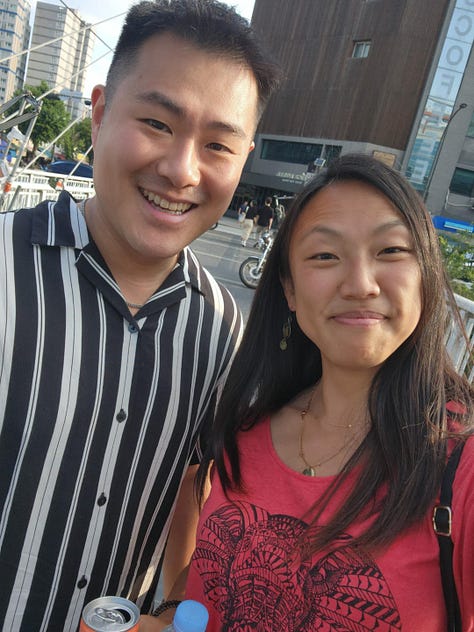
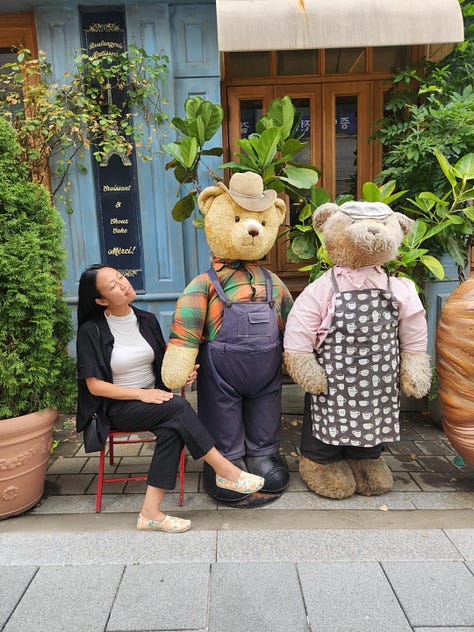
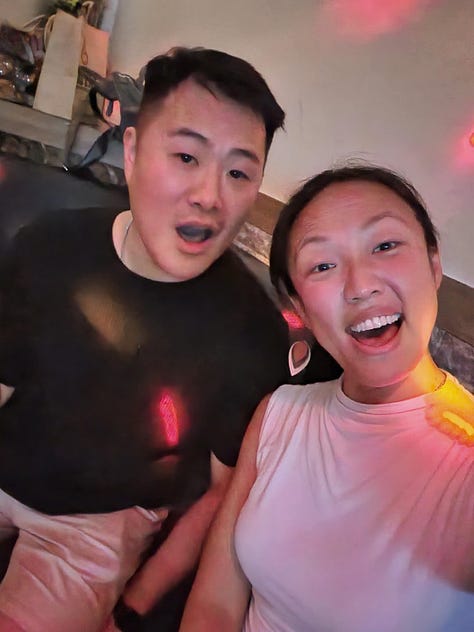
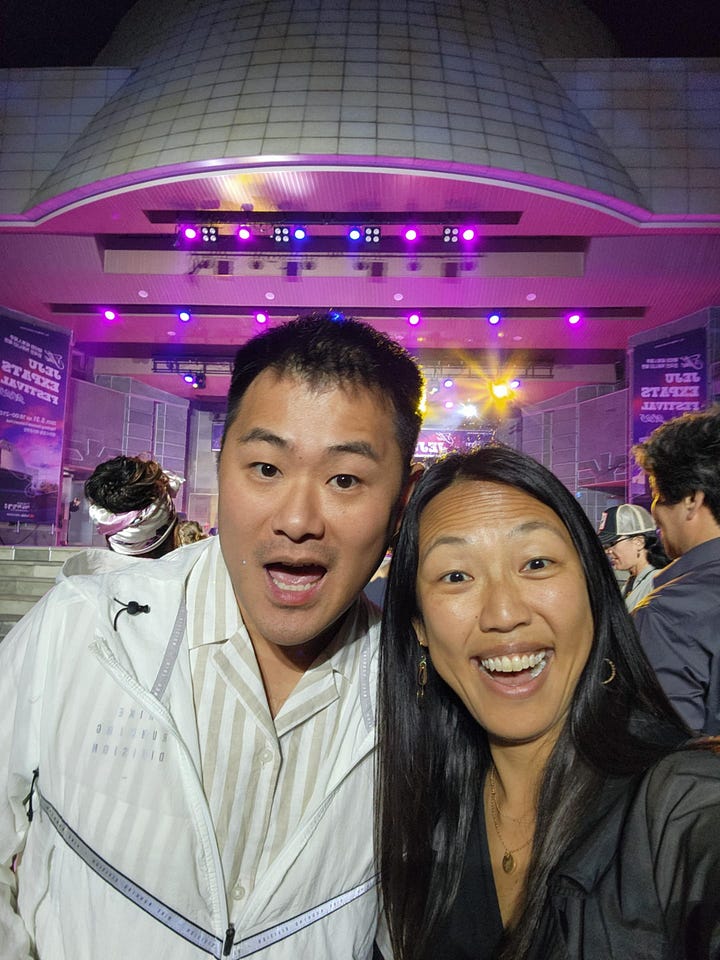
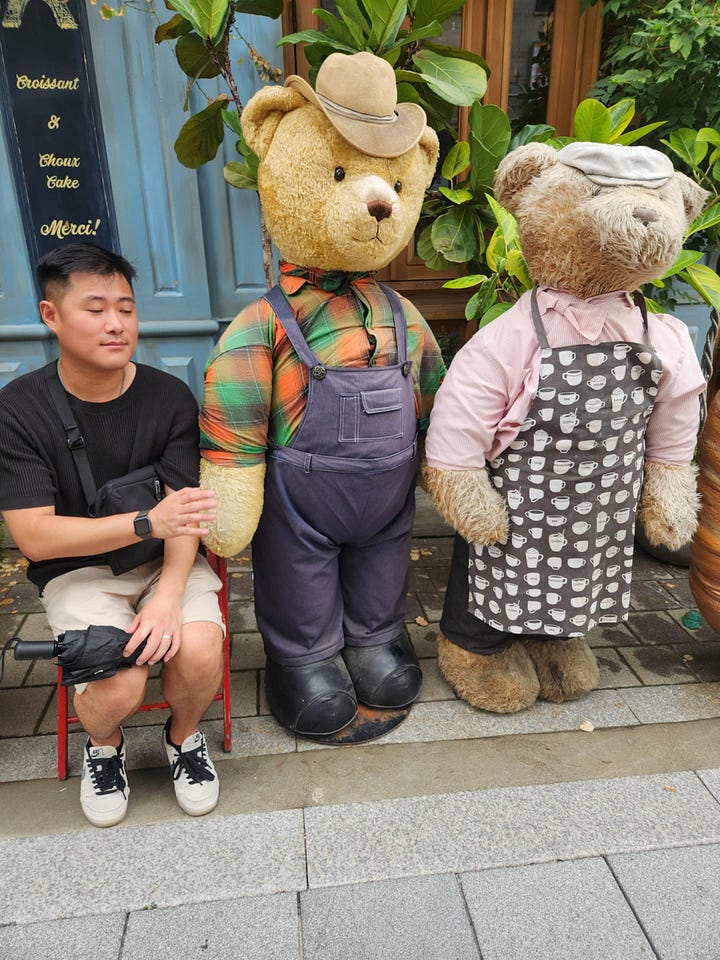
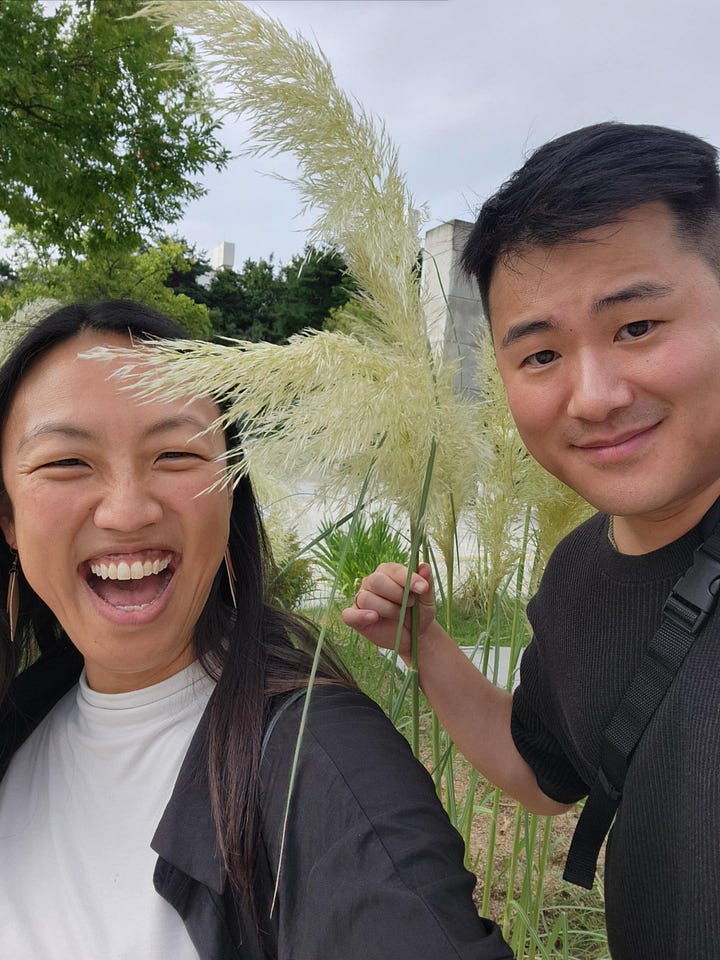
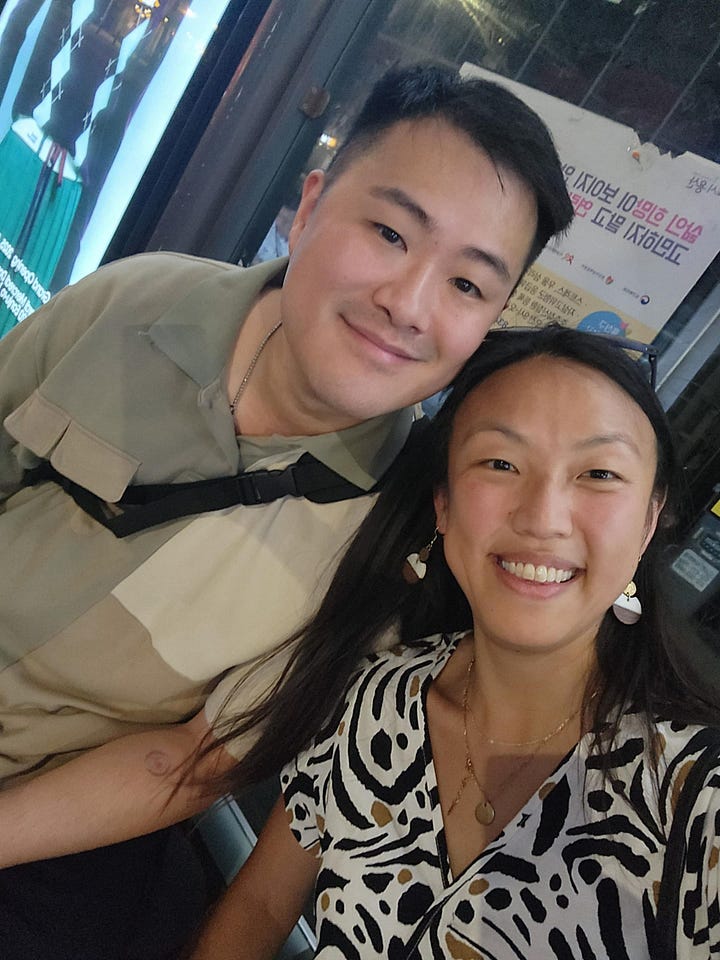
Questions? Comments? Leave a comment here and I’ll respond to it on my Spotify Podcast: Exploring with Jenna Lee Kim in an “unplugged” and unscripted way! You can also email me at jenna.tae.hee.kim@gmail.com

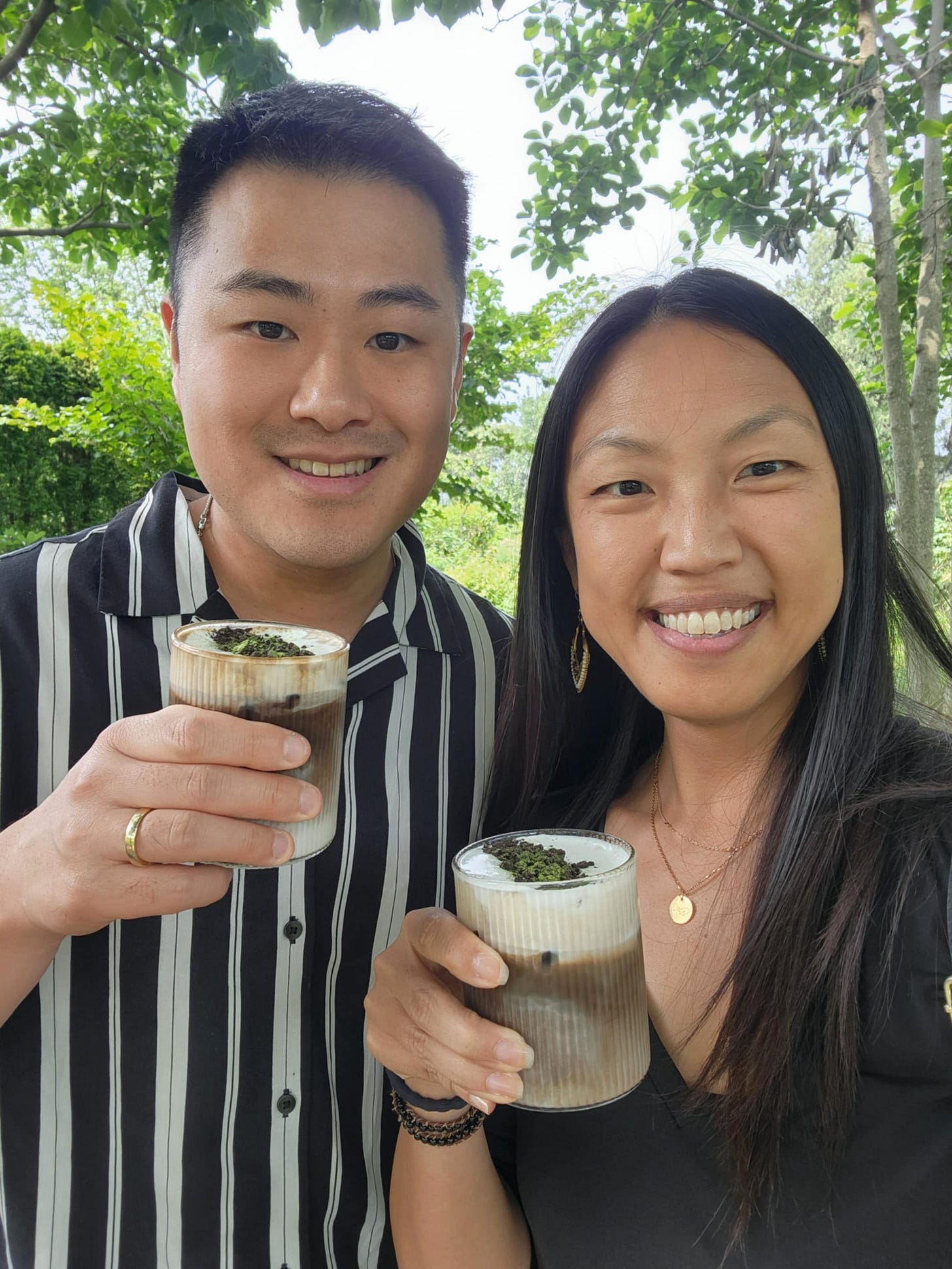
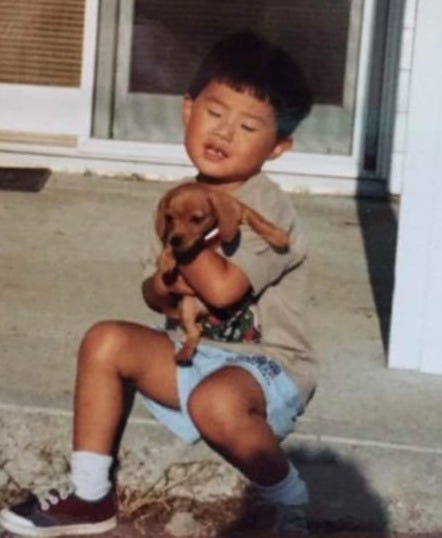
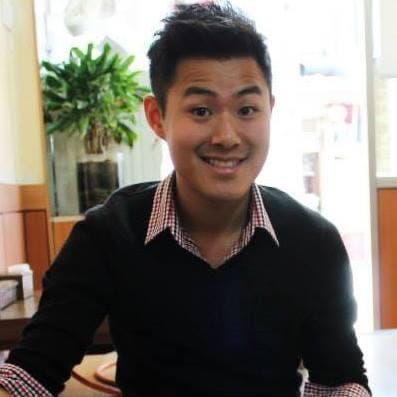
This is a great story. Wanting more...
Delightful read. I LOVE this friend for you! Cory sounds like a very solid human being…smart, fun, worldly, relatable. ❤️